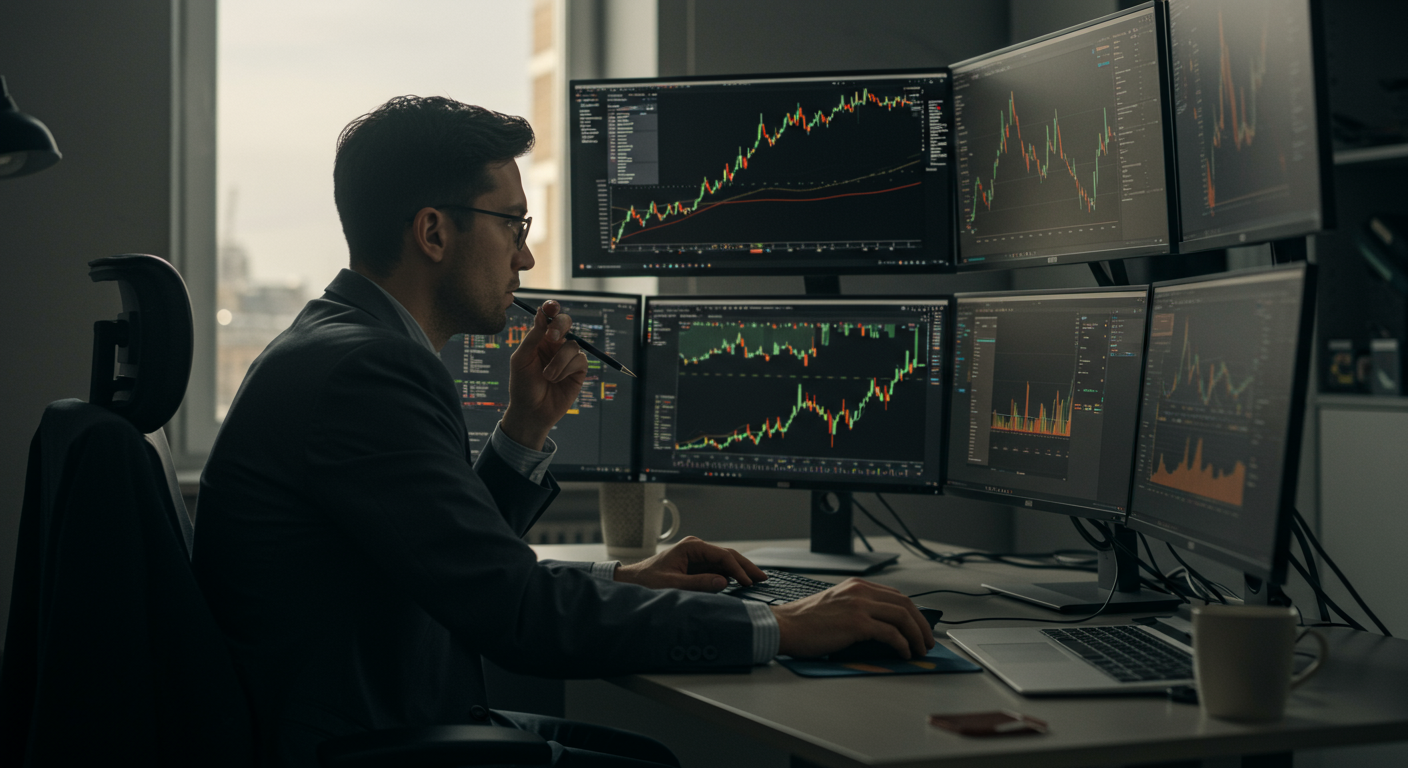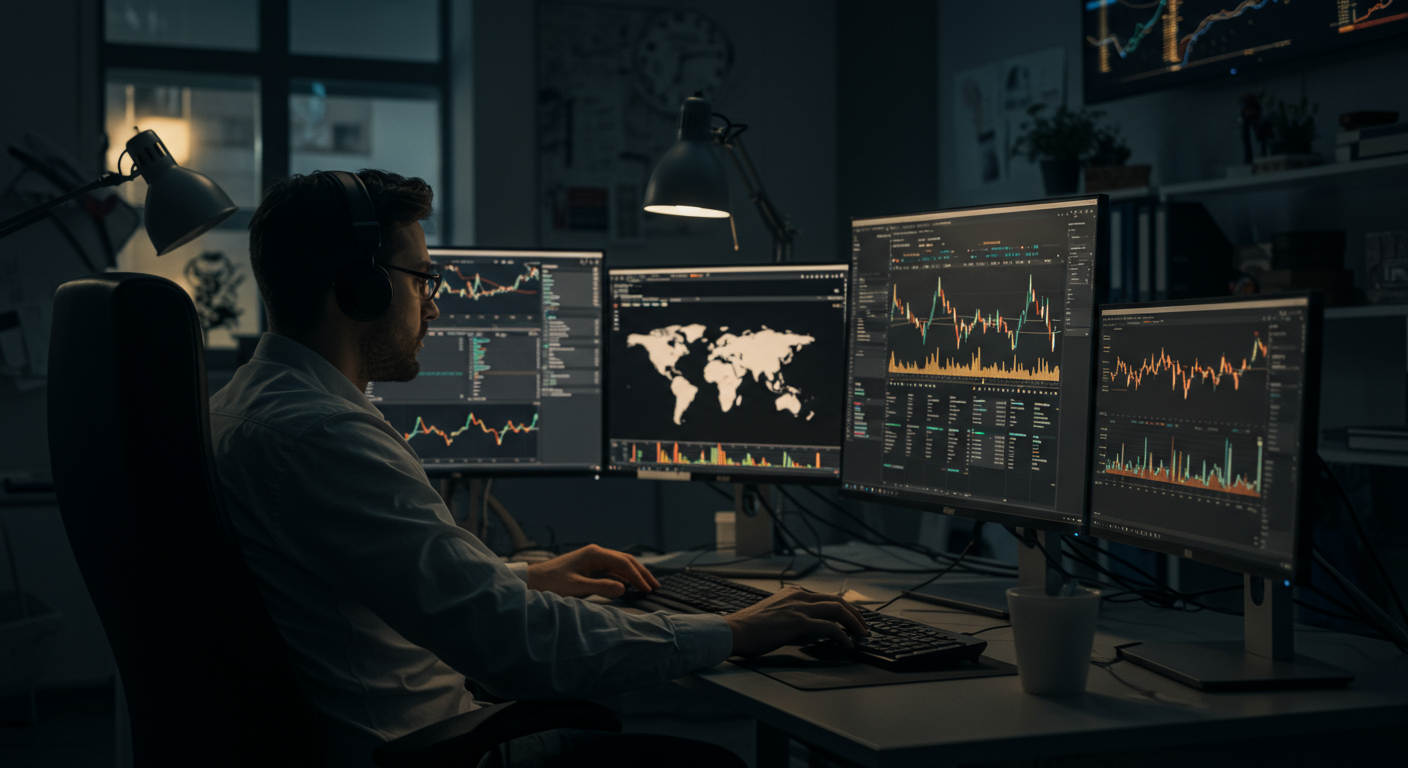Why This Got My Attention
So, I was scrolling through Reddit the other day and saw a post in r/Bitcoin titled, "The Bitcoin haters are popping up everywhere." It got me thinking about something I've noticed too: no matter how long Bitcoin sticks around, it always seems to attract a lot of negative attention. People love to hate on it, call it a scam, predict its demise, and so on.
It’s funny because the original poster mentioned that the "haters" seem scared of interacting with the true HODL believers. And, honestly, I kind of see what they mean. There's a level of conviction among Bitcoin holders that can seem almost religious.
But that got me wondering: why all the hate? Is it just ignorance, or are there legitimate concerns about Bitcoin that people are overlooking? I wanted to break down some of the core arguments against Bitcoin, especially from an international trader's perspective, because let's face it, regulations and perceptions vary wildly around the world. This isn't about blindly shilling Bitcoin; it's about understanding the landscape, the risks, and the potential rewards, regardless of what the naysayers are saying.

Digging Into the FUD
Okay, so what are the main arguments you hear against Bitcoin? Let’s try and dissect this. The big one is volatility. People scream that Bitcoin is too volatile to be a store of value or a viable currency. And, yeah, I get it. We've all seen those crazy price swings. It can be terrifying. A coin can go from $60k to $30k in what feels like a blink of an eye.
But here's the thing: volatility is often tied to newness. Bitcoin is still a relatively young asset class. It hasn't been around for centuries like gold or fiat currencies. As adoption increases and the market matures, that volatility should, in theory, decrease. Plus, savvy traders can actually profit from volatility. I mean, swing trading wouldn't exist if everything was stable, right?
Another common gripe is the environmental impact. Bitcoin mining consumes a lot of energy, and a lot of that energy historically came from fossil fuels. No one can deny that. But the narrative is shifting. More and more miners are turning to renewable energy sources. Solar, wind, hydro… it's happening. And as technology improves, mining will become more energy-efficient. The idea that Bitcoin is inherently bad for the environment is an oversimplification.
What Bitcoin Actually Means for You
So, how does this apply to you, the international crypto trader? Well, first, it means understanding the risks. Don't put all your eggs in one basket. Diversify your portfolio. Only invest what you can afford to lose. I feel like I have to say that, even though it's crypto 101.
But it also means recognizing the potential opportunities. Bitcoin can be a hedge against inflation, especially in countries with unstable economies. It can be a way to bypass capital controls and move money across borders. In some parts of the world, it can even be a lifeline for people who don't have access to traditional banking services.
The key is to do your homework. Understand the regulatory environment in your country. Know the tax implications of buying, selling, and holding Bitcoin. And don't listen to the noise – whether it's coming from the HODL true believers or the Bitcoin haters. Form your own opinion based on facts and research.
The Stuff Nobody Talks About
Let’s be real, there’s always the stuff people gloss over, or maybe don’t even know about. I'm talking about security. Bitcoin is based on cryptography, which is incredibly secure. But you are the weakest link. If you don't protect your private keys, you can lose everything. Use a strong password, enable two-factor authentication, and consider using a hardware wallet. And be wary of scams. There are countless phishing schemes and fake exchanges out there waiting to steal your Bitcoin.
I would be failing you if I didn’t mention regulation again. Regulations are constantly changing, and they vary dramatically from country to country. What's legal in one jurisdiction might be illegal in another. Stay informed about the latest developments in your area. It can be a pain, but it's essential.
Another big one is counterparty risk. If you're using a centralized exchange, you're trusting that exchange to safeguard your funds. And sometimes, exchanges fail. They get hacked, they go bankrupt, or they simply disappear. That's why it's important to choose reputable exchanges and to withdraw your Bitcoin to your own wallet whenever possible. Not your keys, not your coins, remember?
If You're Trading from Outside the US
Okay, so here's where things get interesting. If you're trading from outside the US, you have a whole different set of factors to consider. For starters, the regulatory landscape is even more fragmented. Some countries are embracing Bitcoin, while others are cracking down on it. El Salvador made it legal tender, which is a huge deal, but that doesn’t mean that every country thinks that’s the best thing since sliced bread.
Tax laws also vary widely. In some countries, Bitcoin is treated as property, in others as a currency, and in still others as something else entirely. The tax implications can be complex, so it's worth consulting with a tax professional who understands crypto.
And then there's the issue of currency exchange rates. When you're buying or selling Bitcoin with fiat currency, you're exposed to fluctuations in exchange rates. This can add another layer of risk to your trading activities. Always factor in the exchange rate when you're calculating your profits or losses.

Actually Doing This Stuff
Alright, so how do you actually navigate this complicated landscape? First things first, choose a reputable exchange that operates in your jurisdiction. Do your research. Look for exchanges with strong security measures and a good track record. KuCoin is often recommended for more experienced traders because of their range of altcoins. Changelly is a great option if you are just starting out because of their simple user interface.
Next, set up a secure wallet. As I mentioned earlier, a hardware wallet is the safest option. But if you're just starting out, a software wallet on your computer or phone can be a good alternative. Just make sure to back up your wallet and keep your private keys safe.
Finally, develop a trading strategy. Don't just buy Bitcoin because you think the price is going to go up. Have a plan. Set targets, and stick to it. And don't let emotions cloud your judgment. It's easier said than done, but it's essential for long-term success. Start small and build your positions over time. This helps with averaging out your investment and is known as "dollar-cost averaging".
My Take on All This
Here’s my take on all of this: Bitcoin is not perfect. It has its flaws and its risks. But it's also a groundbreaking technology with the potential to change the world. Whether it lives up to that potential remains to be seen.
I think that the key thing is to stay informed, be skeptical, and make your own decisions. Don't let anyone tell you what to think. Do your own research, weigh the risks and rewards, and decide for yourself whether Bitcoin is right for you.
And, honestly, ignore the haters. They're always going to be there. They were there in the early days of the internet, and they're still there now. The important thing is to focus on the signal, not the noise. If you believe in Bitcoin, hold on. If you don't, that's fine too. But don't let fear or ignorance drive your decisions. Be curious, be open-minded, and be willing to learn. And, most importantly, be responsible with your money.